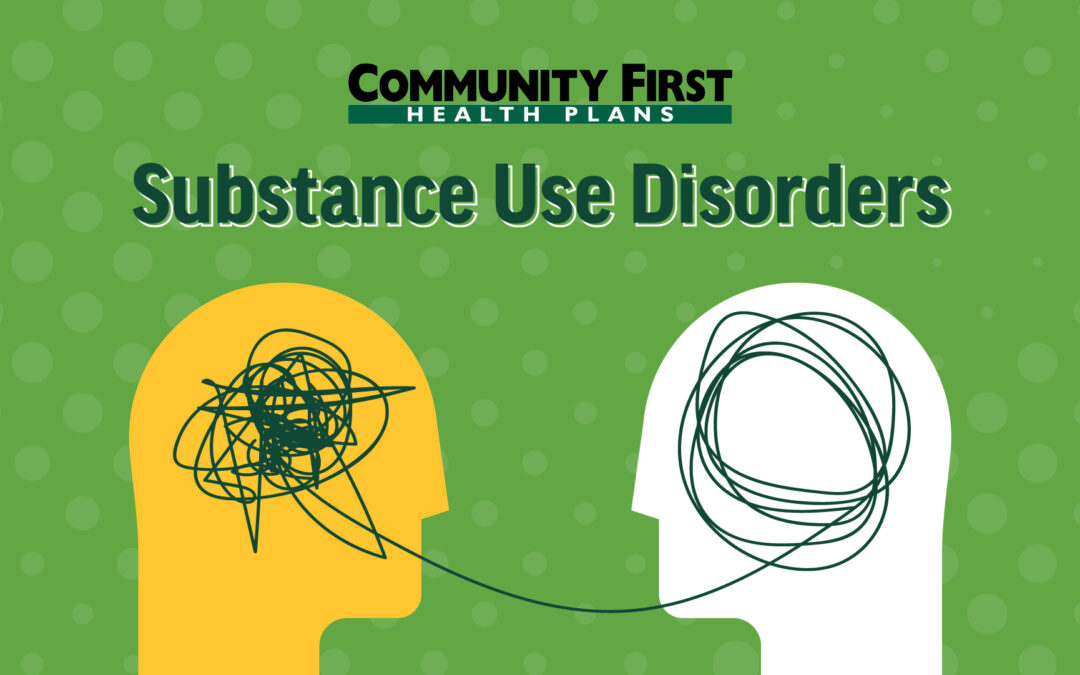Millions of Americans have a substance use disorder,
and it remains an important health issue in our country.
With effective treatment, recovery is possible.
There are many mistaken beliefs about substance use disorders, addiction, and mental health issues. If you or someone you love is struggling, it’s important to understand that it is not a character flaw or a sign of failure.
Substance use disorders are treatable, long-lasting diseases that can affect anyone – regardless of race, gender, income level, or social class.
There is hope for recovery and a brighter future.
What is a substance use disorder?
According to the Centers for Disease Control and Prevention (CDC), a substance use disorder (SUD) is a challenging mental disorder that affects a person’s brain and behavior, leading to poor health, social function, and inability to control the use of substances, like drugs and alcohol. The National Institute of Mental Health (NIH) also states that people who experience an SUD may also experience a mental disorder at the same time, like:
- Anxiety
- Depression
- Attention-deficit/hyperactivity disorder (ADHD)
- Bipolar disorder
- Schizophrenia
What treatment options are available?
Doctors use evidence-based guidelines to choose the right treatment options, like medication, counseling, and rehabilitation. Community First Members can get help for a SUD without a referral for the following:
- Outpatient SUD treatment services like:
- Assessment
- Detoxification services
- Counseling
- Medication-assisted therapy
- Residential SUD treatment services like:
- Detoxification
- Inpatient treatment (including room and board)
Follow-Up Care
Follow-up care is also a very important part of treatment. Community First offers eligible Members gift card rewards for completing follow-up appointments and no-cost transportation to and from the doctor or pharmacy to help Members stay on track with their recovery.*
SUD Prevention
There is no guaranteed way to predict if someone will experience an SUD. However, there are some things that you can do to help prevent it.
Evaluate Risk Factors
- Know your family history of SUDs, mental illness, and addiction.
- Be aware of your risk factors, like mental health issues and substance use among peers or family members.
Focus On Your Health
- Practice meditation and self-care to manage stress.
- Eat a healthy, well-balanced diet.
- Try to get 7-8 hours of sleep a night.
- Find positive outlets like exercise, volunteering, reading, or a new hobby.
Find Support
Your content goes here. Edit or remove this text inline or in the module Content settings. You can also style every aspect of this content in the module Design settings and even apply custom CSS to this text in the module Advanced settings.
Get Help
- Call the Community First 24/7 Behavioral Health & Substance Use Hotline: 1-877-221-2226
(STAR Kids: 1-844-541-2347), or - Suicide & Crisis 24/7 Hotline: 988
*Limitations and restrictions apply. Please email healthyhelp@cfhp.com or call 210-358-6055 for more information.
Sources:
https://www.cdc.gov/dotw/substance-use-disorders/
https://www.nimh.nih.gov/health/topics/substance-use-and-mental-health.


Recent Comments